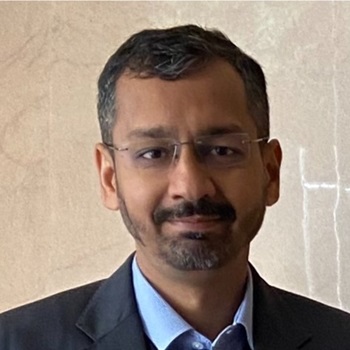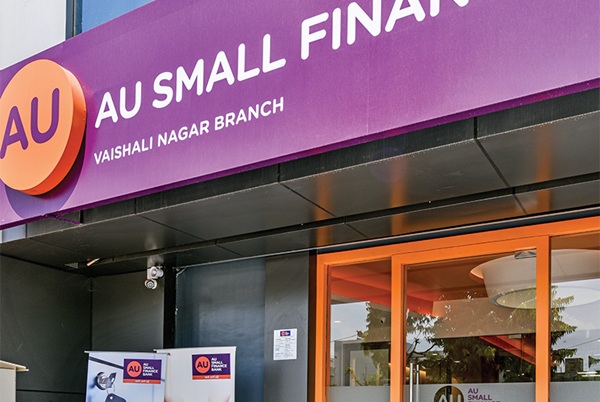.png)
Sarci-Sense: The Networking Delusion Where Everyone’s a Connector, Nobody’s a Friend
We hoard contacts like trophies, confuse politeness with connection, and mistake events for community. Networking promises belonging, but delivers only performance, leaving us abundant in numbers, and impoverished in friends.


By Srinath Sridharan
Dr. Srinath Sridharan is a Corporate Advisor & Independent Director on Corporate Boards. He is the author of ‘Family and Dhanda’.
October 5, 2025 at 4:38 AM IST
Let’s be honest. Networking is the polite fiction of our times. We call it connecting, but what we really mean is performing. You smile, you swap cards or LinkedIn handles, you promise to “catch up soon.” Both of you know you won’t. The ritual has been mistaken for the relationship.
Once upon a time, people had friends. Friends you could call when life collapsed at midnight. Friends who knew your secrets. Now you have “contacts.” You don’t share your fears with them, you tag them in posts. Networking hasn’t expanded our circles. It has thinned them.
We collect contacts the way children once collected stamps. The pile looks impressive, but the letters never arrive. The numbers go up, the phonebook swells, the LinkedIn requests keep rolling in. Yet nothing moves. Nobody writes, nobody calls, nobody shows up when it matters. The collection is only for display, like souvenirs in a showcase. It gives the illusion of reach, but when you actually reach out, the silence is louder than the applause.
Social media has made this worse. Your phone is bursting with followers, alumni groups, professional circles. Everyone looks reachable, but nobody feels close. The new loneliness is not having no one to talk to. It is being surrounded by contacts who will never pick up when you call.
Loneliness has quietly become the shadow of our hyper-connected lives. Studies tell us that India’s middle-aged professionals are among the most socially active online, yet one of the loneliest in private. It is the pitiable and pressure-filled modern life: five hundred birthday wishes on LinkedIn, but dinner eaten alone. Networking fills your notifications, not your evenings.
You know the drill. Coffee at Blue Tokai, chit-chat about “synergy,” a selfie to prove it happened. Nobody really wants the coffee. Nobody really listens. The latte is just the price of admission to an hour of professional dole we play.
And the language. Oh, the language. “Let’s collaborate.” “We should circle back.” “Great to e-meet you.” These phrases are the small talk of ambition. They sound friendly, but they mean nothing. They are placeholders for a connection that never arrives.
Even nostalgia is now monetised into networking. Alumni reunions, school WhatsApp groups, LinkedIn badges. You tell yourself you are there for the memories, but everyone is measuring who climbed higher, who stalled, who faded. The old school ties have morphed into harsh benchmarking.
We mistake quantity for strength. The longer the contact list, the safer we feel. It is the same illusion as the storage trunks in old Indian homes, stuffed with things “just in case,” yet never the one thing you actually need. Networking is a kind of hoarding, a compulsion to collect for display. The list looks abundant, but when the moment comes to ask for help, you discover that abundance can be emptier than scarcity.
Indians are particularly good at the politeness of pretence. We hate saying no, so we smile and nod and murmur “happy to help anytime,” knowing very well that we never will. Networking thrives on this national habit of non-committal courtesy. Everyone plays along because politeness costs nothing.
Every age plays this game differently, but the hunger is the same. In your twenties you network to break in, hoping one coffee will unlock a career. In your forties you network to move up, juggling more coffees than you can digest. In your fifties you network just to stay visible, because the fear of irrelevance bites harder than any espresso. The ages are different, but the desperation is the same. Only the urgency stings.
The event industry feeds on this anxiety. Mixers, leadership brunches, startup happy hours. Everyone dressed, everyone smiling, everyone leaving with selfies instead of substance. You leave tired, not enriched.
There is now an entire economy orbiting this delusion. Co-working spaces promise “collisions of ideas.” Conferences are sold as “networking opportunities.” Leadership summits are less about leadership and more about buffets. People pay for access to each other, and the industry thrives because the hunger to belong is bottomless. The irony is that the real connections that change lives rarely happen in air-conditioned halls. They happen in unplanned moments, often far away from the name tags and the selfie walls.
In India, we have been networking long before LinkedIn gave it a name. Families did it through marriage alliances, community clubs, caste associations, and the cousin who knew someone in the Secretariat. In our midst, uncles, cousins, in-laws are the original LinkedIn. Jobs and contracts are passed through community pipelines, wrapped as “support.” What was once called nepotism has been relabelled as support. Our society was built on favours long before “contacts” became the polite word.
The word “community” gets thrown around at every networking brunch and every leadership summit. Communities are not built on free cocktails or shared hashtags. They are built on shared stakes and unpolished conversations. But nobody wants to admit that. It is easier to market belonging as an event, a panel discussion, or a retreat package. Community has become a business model, and like most business models, it scales without intimacy.
The truth is, most of us are exhausted by it. The endless coffees, the messages to reply to, the reunions that feel like obligations. Yet nobody dares to stop. To stop is to vanish. And so we continue, actors in a play nobody enjoys but everyone attends, and claims to be enjoying.
Here is the irony. We tell ourselves networking builds community. In truth, it hollows it out. People become contacts. Relationships become transactions. Trust is replaced by performance. The more we network, the less we connect. Because here is the one thing no amount of networking delivers. At three in the morning, when the world falls apart, a contact will not pick up the phone. A friend will.



